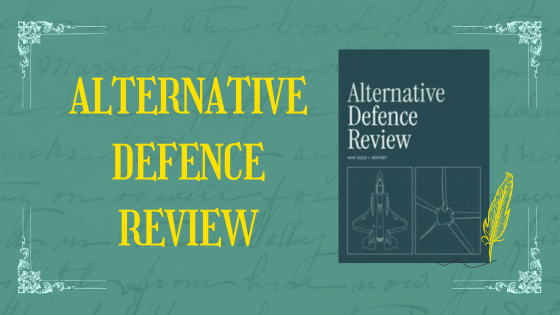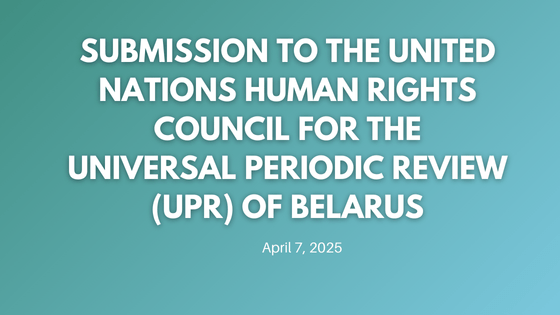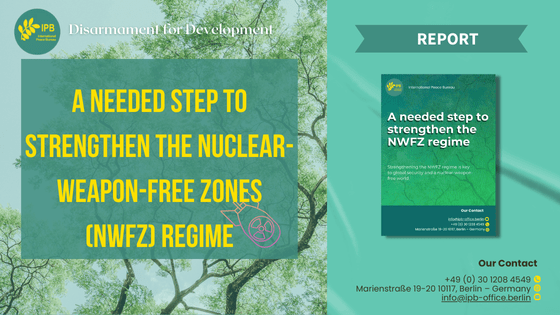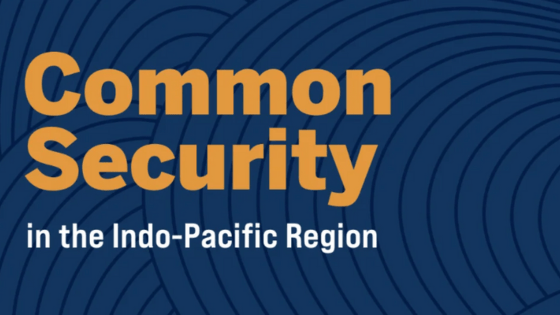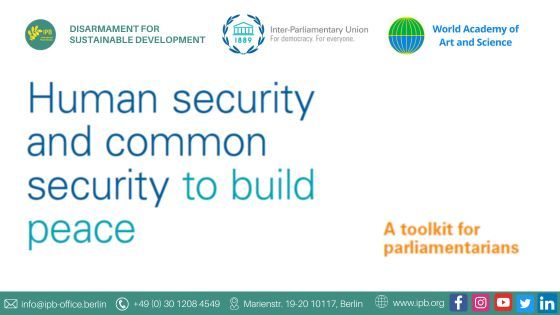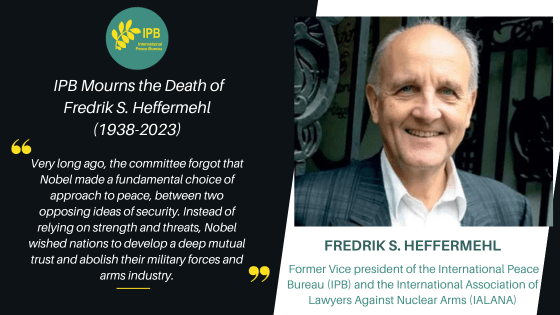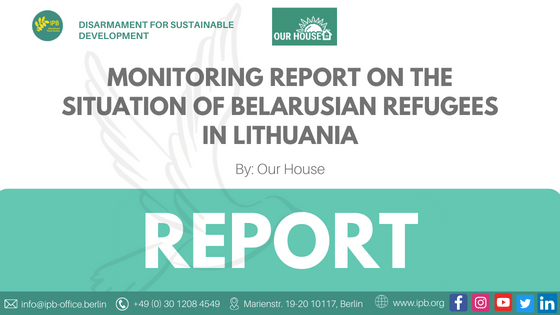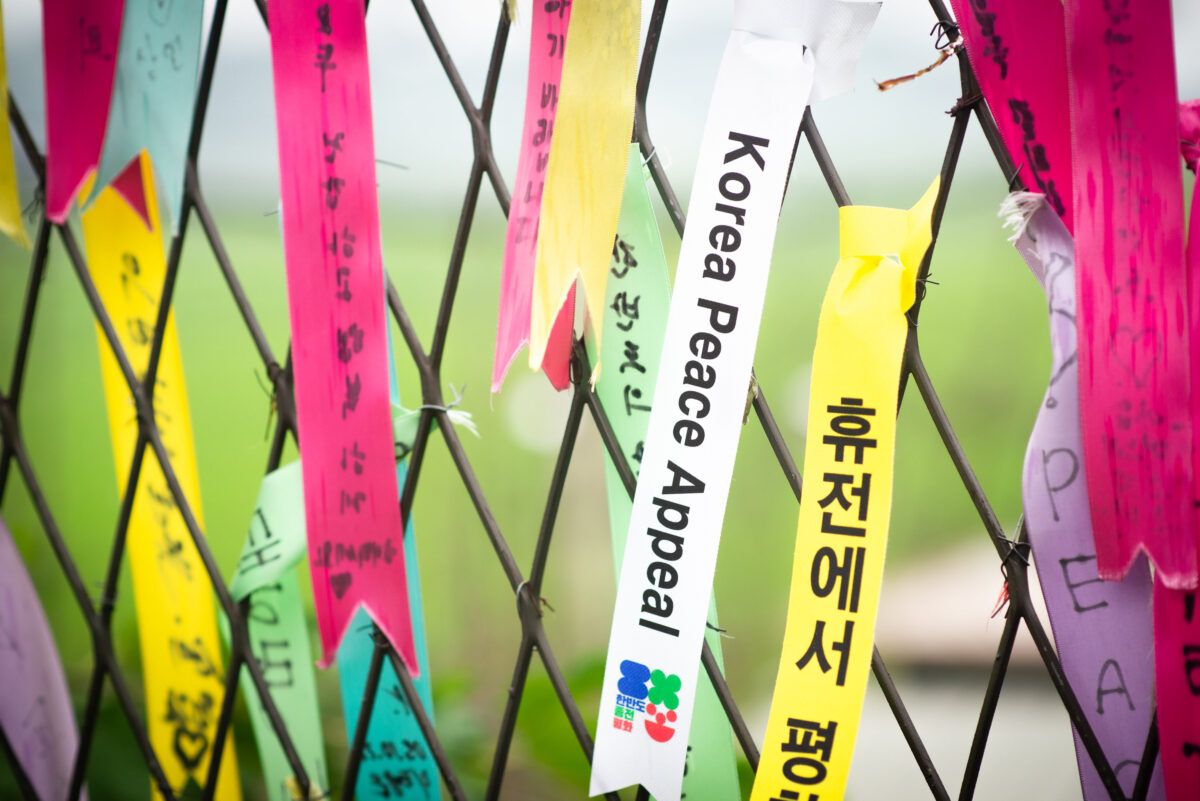The Campaign for Nuclear Disarmament (CND) has launched the Alternative Defence Review in response to the UK Government’s 2025 Strategic Defence Review. The document explores the broader implications of increased defence spending and offers a different perspective on national and international security policy. It forms part of a wider initiative involving trade unions and peace organisations aiming to reassess the direction of UK foreign and defence policy.
Continue reading “Alternative Defence Review”Books
Submission to the United Nations Human Rights Council for the Universal Periodic Review (UPR) of Belarus
50th Session of the Human Rights Council Working Group | November 2025
7 April 2025
The International Centre for Civil Initiatives “Our House” (Belarus &Lithuania), International Peace Bureau (IPB), and coalitions of international peace and human rights organizations, have submitted a comprehensive report to the United Nations Human Rights Council for the 50th session of the Universal Periodic Review (UPR) on Belarus last 7 April 2025.
Continue reading “Submission to the United Nations Human Rights Council for the Universal Periodic Review (UPR) of Belarus”Arctic Council – what and where to?Arctic Council – too important to be squeezed between the great powers!
Author: Ingeborg Breines
Norwegian peace educator, former director in UNESCO and former president of the International Peace Bureau/IPB
There are many reasons to pay close attention to what is happening in the far north. The Arctic is attracting strong international interest as global warming and melting ice open up for more fishing, more drilling of oil and gas and hunt for minerals on the seabed. In addition, there is increased shipping, especially in the Northeast Passage, with faster trade and transport opportunities between the West and the Far East.
Continue reading “Arctic Council – what and where to?Arctic Council – too important to be squeezed between the great powers!”A Needed Step to Strengthen the Nuclear-Weapon-Free Zones (NWFZs) Regime
By: Enkhsaikhan Jargalsaikhan, IPB Board Member and Blue Banner Chairman
Growing importance of NWFZs
Nuclear-weapon-free zones (NWFZs) are important and practical regional measures of non-nuclear-weapon states (NNWSs) in promoting the goals of maintaining strategic stability, nuclear non-proliferation and strengthening confidence among states. Today there are more than 115 states the territories of which cover about 84 mln km2 of the world’s landmass, representing 39% of its population and making up almost 60% of United Nations membership. Thus much has been achieved in the past half a century. However, the past rich experience should serve as a tool of strengthening and broadening further the NWFZ regime leading to creating a nuclear-weapon-free-world (NWFW). When oceans and seas that cover about 70% of the Earth’s surface are to be included, the NWFZ regime would cover most of the NWFW.
Continue reading “A Needed Step to Strengthen the Nuclear-Weapon-Free Zones (NWFZs) Regime”Common Security in the Indo- Pacific Region
14 October 2024 – In collaboration with the Campaign for Peace, Disarmament, and Common Security, PeaceMOMO, and the dedicated efforts of an international working group of scholars and peace leaders from across the Indo-Pacific, the U.S., and Europe, we are proud to share the Common Security Report in the Indo-Pacific Region.
Continue reading “Common Security in the Indo- Pacific Region”NEW PUBLICATION: Human Security and Common Security to Build Peace – A Toolkit for Parliamentarians
A new joint publication by the Inter-Parliamentary Union (IPU), the International Peace Bureau (IPB) and the World Academy of Art and Science (WAAS) is designed to provide parliamentarians around the world with a toolkit for prioritizing human security and common security as opposed to militarized state security.
Continue reading “NEW PUBLICATION: Human Security and Common Security to Build Peace – A Toolkit for Parliamentarians”C7 Policy Recommendations: Peace, Common Security and Nuclear Disarmament
By: International Peace Bureau and Italian Network for Peace and Disarmament
CONTEXT: CHALLENGES TO ADDRESS
On May 19, 2023, following G7 leaders’ Hiroshima Vision on Nuclear Disarmament proclaimed a “commitment to achieving a world without nuclear weapons with undiminished security for all.” As anxieties over global crises continue to grow, the pursuit of undiminished common or collective security has never been so necessary.
Continue reading “C7 Policy Recommendations: Peace, Common Security and Nuclear Disarmament”Honoring the Legacy of Fredrik S. Heffermehl: A Voice for Peace and a Final Masterpiece
With heavy hearts, we announce the passing of Fredrik S. Heffermehl in late December 2023, a cherished member of our community and a relentless advocate for peace. As a distinguished lawyer, author, and former Vice President of the IPB, Heffermehl dedicated his life to the cause of peace and disarmament.
Fredrik’s involvement in peace activism extended beyond the IPB. He played a vital role as Vice President of IALANA (International Association of Lawyers Against Nuclear Arms) and led the Norwegian Peace Council from 1985 to 2000. His influential works, including “Peace is Possible” and “The Nobel Peace Prize. What Nobel Really Wanted,” have been translated into multiple languages, reflecting his global impact.
Continue reading “Honoring the Legacy of Fredrik S. Heffermehl: A Voice for Peace and a Final Masterpiece”Monitoring Report on the Situation of Belarusian Refugees in Lithuania
Regrettably, a concerning situation is unfolding in Lithuania, involving the rights of Belarusian refugees escaping the Lukashenko regime and compulsory military service.
In collaboration with Our House, we aim to provide you with their observational findings and recommendations for addressing the circumstances in Lithuania related to Belarusian political refugees and conscientious objectors from Belarus.
Continue reading “Monitoring Report on the Situation of Belarusian Refugees in Lithuania”Peace Is Possible, If We Want It
Ahead of the 70th Anniversary of the Korean War Armistice in 2023
Written by Sooyoung Hwang: Manager, Center for Peace and Disarmament, PSPD Secretary General, Korea Peace Appeal Campaign
Not long ago, there was an accident in which a South Korean missile fell into a military unit in Gangneung, a city in the east of South Korea. The missile fired by the South Korean military in response to North Korea’s ballistic missile launch was mistakenly dropped during an abnormal flight. The explosion and fire left residents in a state of anxiety all night. As North Korea’s missile crossed the South Korea’s NLL(Northern Limit Line) and fell into the open sea, an air raid warning was issued for the first time on Ulleungdo, a small island in the east sea. Many military experts said the missile was likely a “fault.” Residents living in Gunsan, where USFK air base is located, continuously say, “It’s too loud to live here.” Because a large-scale ROK-US combined air force exercise ‘Vigilant Storm’ was conducted last november. It was a military exercise mobilizing 250 aircrafts including F-35A fighter jets of South Korean army and USFK, and F-35B fighter jets of USFJ to strike hundreds of strategic locations in North Korea simultaneously.
Continue reading “Peace Is Possible, If We Want It”
